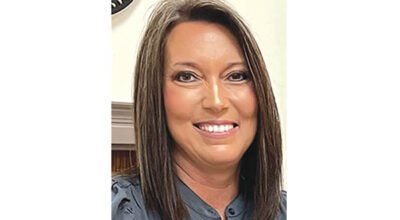Budget committee looks at county employee pay scales
Published 7:53 am Friday, January 15, 2016

Carter County may soon be working with an outside agency to study the pay scales of county employees and how they compare to surrounding counties.
Last year, the Carter County Commission tasked the budget committee with conducting a pay scale study to see if something could be done to improve employee retention rates and make the county more competitive in the job market. In turn, the budget committee asked the department heads and office holders to contact their counterparts in surrounding counties and other counties of similar size to find out what their employees made.
On Thursday, the committee held a workshop session to discuss the information turned in by the office holders. While no formal action could be taken due to the meeting being only a workshop session, most of those in attendance were in agreement that something needed to be done regarding the pay scale for Carter County employees.
Committee member L. C. Tester, who himself is a county employee as a lieutenant with the Carter County Sheriff’s Office, discussed some of the issues he has seen in his nearly three decades of employment with the county.
“In the last five years we’ve probably lost 12 to 15 officers to the Elizabethton Police Department because they can cross the river and make more money,” Tester said. “When one of our deputies gets out of the academy they can come back and go straight to the Elizabethton Police Department and be making $6,000 more a year and not have to pay for their insurance or retirement.”
“You’ve got to keep in mind we’re in competition with these surrounding counties,” he added. “You’re fighting that battle continuously to stay competitive in the market.”
Committee member Ronnie Trivett agreed that low pay is a problem in Carter County, and not just for county employees.
“Do you know what the median income is in Carter County,” Trivett asked his fellow committee members. “It’s about $15,000. That’s not a lot of money.”
As the discussion went on regarding what to compare and which surrounding areas Carter County should be compared to, some of the committee members felt swamped by the task of completing the study.
“We’re getting in the weeds and we’re never going to be able to do this,” committee member Buford Peters said, adding he felt if the county was “serious” about doing the study they should contract with a professional service that completes such studies. “They can go into a lot more detail with this than we ever could.”
Committee member Nancy Brown questioned if the committee should be doing the study at all rather than turning it over to professionals.
“I don’t think it’s right for us to be sitting here doing this when we know we’re not qualified to do it,” she said.
Peters also questioned whether the work should be completed by the committee, noting that committee members either worked for the county or had friends or family that did.
Chairwoman Sonja Culler noted the Carter County school system is working on a similar study and will be meeting with a professional company in February to discuss allowing that company to complete the work.
Since no official action could be taken, Peters said he would like to recommend that committee members attend the meeting with the school system to investigate if that company could also do the study for the county. The estimated cost to have the outside company complete the study is $20,000.
“If we’re going to commit to spend that kind of money to have this study done then we need to be committed to giving our employees a raise,” Culler said.




